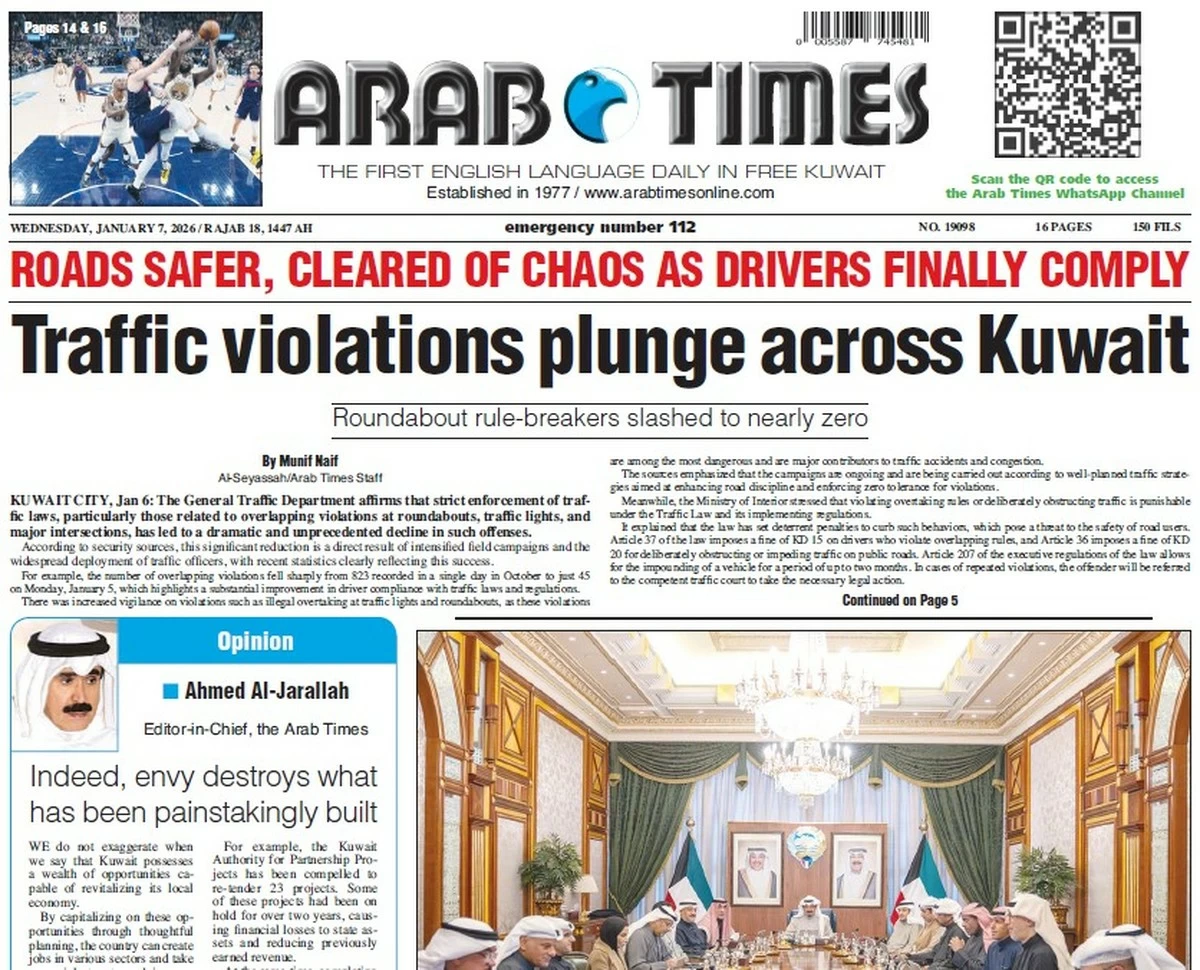01/05/2024
01/05/2024
THE US Ambassador to Kuwait Karen Hideko Sasahara and I met at my office in Al-Seyassah Press House. The meeting, which lasted for more than an hour, was attended by officials from Al- Seyassah. We engaged in a very long discussion covering a variety of topics.

There is no doubt that Ambassador Sasahara is a treasure of information in international politics. This is because she has held many positions both in the United States and abroad, which qualified her to assume diplomatic missions in more than one country. During this lengthy meeting, there were some important questions that I posed to Her Excellency.
They were - What does the United States want from the Middle East?
What do we in this region want from the United States, especially in light of the constant change of American presidencies, and the changing faces and convictions of officials in the administration in Washington?
I presented my opinion that the allies sometimes feel uncomfortable with some American policies, as there is no fairness in them. Sometimes the president’s personality dominates the relations, so they are very sensitive, and there is a lot of evidence in this regard. This is therefore reflected in the decisions, either on the part of the allies or the Washington administration. Eras change due to the nature of the president residing in the White House. Eisenhower’s personality was different from Roosevelt.
Truman also had a vision different from those who preceded him, as did John Kennedy and Obama. Depending on the positions of the party he represented, Trump was different. Likewise, Biden currently has approaches to the Middle East that are not consistent with what they were during the era of Clinton, Reagan, or Carter.
In summary, the personal nature of the ruler of the White House has its own peculiarity even in formulating his administration’s policy. Therefore, there is a constant question among the rulers of the Middle East - What does Washington want from our capitals? There is no doubt that the American relations with major countries are stable at a certain pace. They are with Russia, but not at the same level with its ally France, or its competitor China, as they are with the United Kingdom.
The same applies to other countries, as their natures are comprehended, and there is nothing new in them, because they revolve around certain matters, and there is no room to enumerate them in this haste. However, the problem remains with the allies in the Middle East who do not know the direction of the American administration’s winds, especially with the rapid developments in the region, and what it imposes on some surprising American decisions, sometimes among the leaders of the region but specifically the allies among them.
Her Excellency the Ambassador responded to these questions using sophisticated language, and with a deep understanding of reality through the information she collected from her work in Amman, Jerusalem, Sanaa, Beirut and Baghdad. She is familiar with the conditions and events of the region, and she was undoubtedly successful in her work, which qualified her for this position.
Despite the conversation that took place between us, and the answers we obtained from Her Excellency Ambassador Sasahara, the question still remains - What does the United States want from its allies in the Middle East? Perhaps time will tell, after which there may not be any changes in the policies of the White House, and they will not be based on the personality of the president.
By Ahmed Al-Jarallah
Editor-in-Chief, the Arab Times
[email protected]


